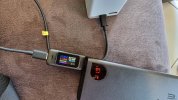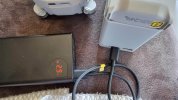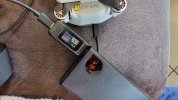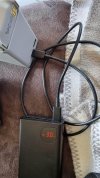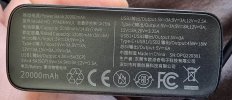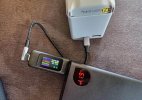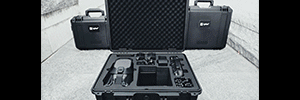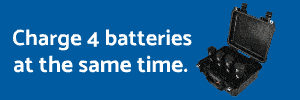I found something interesting today. All wattages are approximate. Shown on my USB-C cable with meter in 1 end.
Powered from Anker 736 100 watt charger. Top USB-C port.
Mini 3 Pro with Int Battery standard charges at approx 30 watts in the drone.
Mini 3 Pro with Int Battery PLUS charges at approx 30 watts in the drone.
2 way charging hub, 1 standard battery charges at 24 watts
2 way charging hub, 1 PLUS battery charges at 24 watts
2 way charging hub, 1 standard battery, and 2 PLUS charges at 24 watts
DJI RC showed chargin at 12 watts
The only time I saw 30 watts charging was having the battery in the Mini 3 Pro. I guess the 2 way hub has some smarts in it which maybe only call PD 24 watts.
Some look at a bunch of chargers used on a Mini 3 Pro
ChargerLAB Mini 3 Pro Charging
Powered from Anker 736 100 watt charger. Top USB-C port.
Mini 3 Pro with Int Battery standard charges at approx 30 watts in the drone.
Mini 3 Pro with Int Battery PLUS charges at approx 30 watts in the drone.
2 way charging hub, 1 standard battery charges at 24 watts
2 way charging hub, 1 PLUS battery charges at 24 watts
2 way charging hub, 1 standard battery, and 2 PLUS charges at 24 watts
DJI RC showed chargin at 12 watts
The only time I saw 30 watts charging was having the battery in the Mini 3 Pro. I guess the 2 way hub has some smarts in it which maybe only call PD 24 watts.
Some look at a bunch of chargers used on a Mini 3 Pro
ChargerLAB Mini 3 Pro Charging
Last edited:






